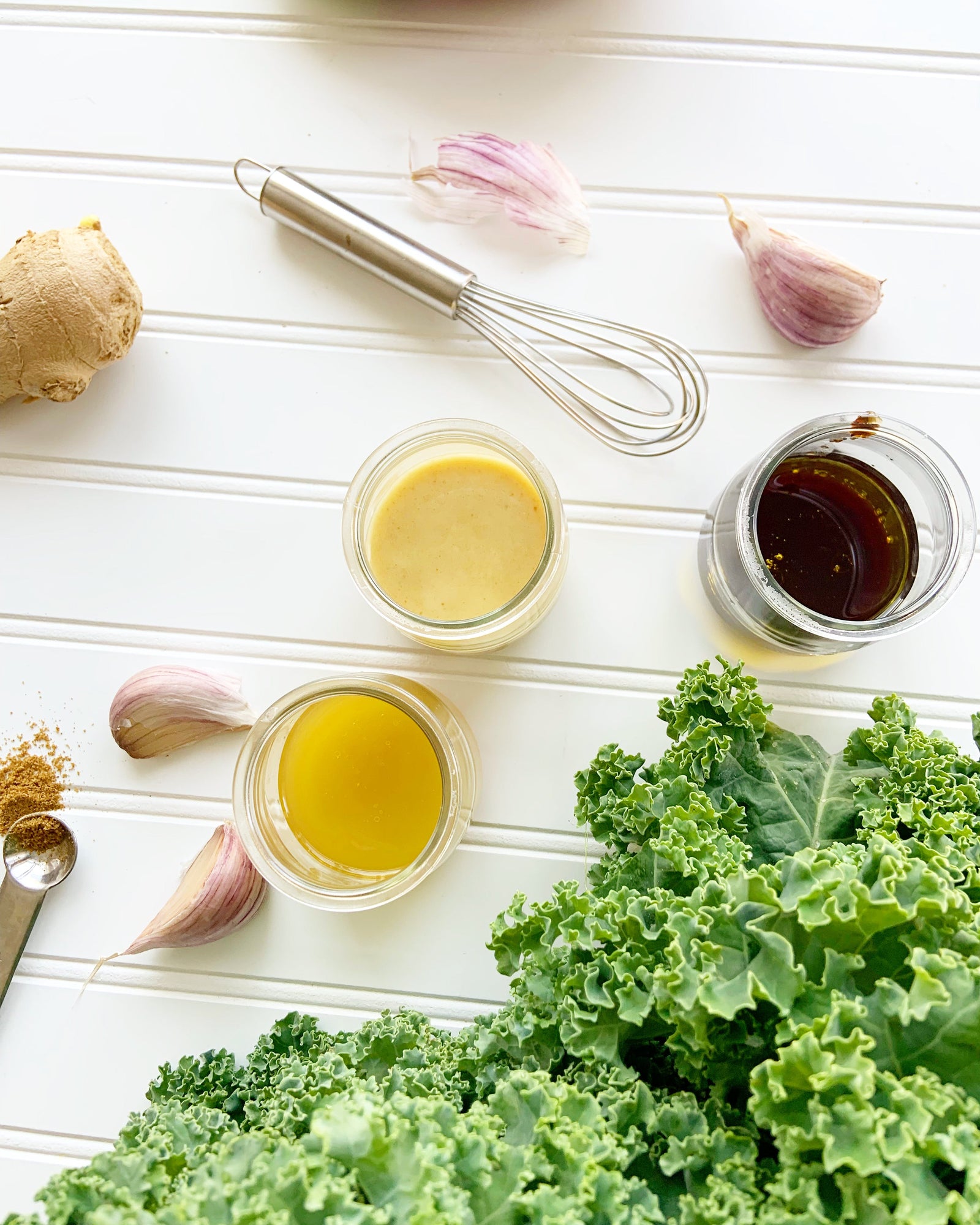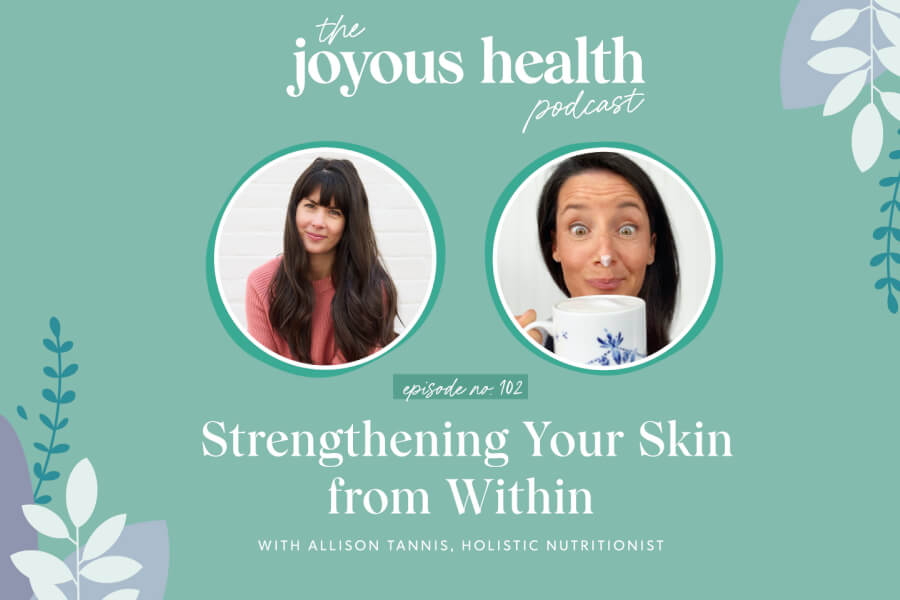With so many misconceptions about sugar out there, healthy eating and weight loss is confusing. Let’s demystify 3 lies about sugar and unlearn the food rules that don’t serve us. From skin health to weight management, here are the truths about sugar you need to know to live your sweetest, healthy life.
It’s time to unlearn the lies, and get smart about sugar.
If you’ve ever struggled to eat healthy with confidence, this is exactly what you need to read.
Will I Gain Weight If I Eat Sugar?
Absolutely not! Your weight (and, health) isn't determined by one ingredient. There are so many factors that determine whether your body will gain weight, including the amount of energy your body needs to use to perform your daily tasks or movements, your metabolism, other nutrients consumed with the sugar, stress, sleep and more!
You can eat sugar and manage your weight. The trick is knowing where added sugar is hiding in your food, incorporating more whole foods into every meal or snack, moving more, and working on your stress management and sleep strategies.
Here's the inside scoop on sugar, and the 3 lies you should unlearn...
Lie 1: Sugar is Bad for You
Well, that’s definitely not true.
Your body needs sugar – it’s a main energy source. But, not all sugars are created equally. There are sort of two major groups of sugars:
Natural Sugars - the kind found in whole foods, such as fruits, vegetables, whole grains and legumes are excellent sources of energy.
Refined Sugars - also called "added sugar", refined sugar is in candy, baked goods, crackers, sauces, sweetened beverages and so much more. Refined sugars are a source of energy but, there are no nutrients attached!
The problem with refined sugar is the roller coaster ride they put your blood sugars on. It can leave your body unwell. This refined sugar impacts your skin and weight - it's worth knowing more about it.
Lie 2: There’s a Sugar High
Sure, you get some feelings of pleasure and reward when you eat sweet things – a sort of sugar high. But, eating sugar doesn’t make you hyperactive – it actually makes you tired.
Let’s say you eat some refined sugar, like a candy bar. Without any other foods, there’s no fiber, fat or protein to slow down how fast your body absorbs that refined sugar. Your blood sugar levels go way up, then crash down – it’s a rollercoaster ride.
The Sugar Crash leaves you feeling tired. So, you look for energy. You look for more food!
Eating high sugar foods doesn’t make you feel full or satisfied. Instead, you’re left with cravings, so you eat more, which makes weight management difficult.
Lie 3: Sugar Makes You Sick
Sugar doesn’t directly make you sick, but it is really hard on your body - particularly if you repeatedly eat high sugar foods.
Sugar acts like asteroids crashing into parts of your cells, damaging them. That triggers inflammation. And, inflammation is a culprit for so many health challenges, from heart disease to wrinkles in your skin.
How Much Added Sugar is Hiding in Your Food?
There’s more added sugar in your packaged foods and beverages than you might expect! If you're hoping to reduce the amount of added sugar you eat, here are the worst culprits:
- Pasta sauces
- Salad dressings
- Granola bars
- Breakfast cereals
- Sweetened beverages
In fact, it's probably worth checking the Nutrition Facts panel of all of your favourite processed or packaged foods – there may be more (or less) added sugar in there. If there's more added sugar than you want, consider an alternative, such as some sweet fruit.
How Many Grams of Sugar are in a Healthy Diet?
Aim for less than 50 grams of added sugar a day, according to the World Health Organization.
7 Benefits to Decreasing Your Sugar Intake
Consuming high amounts of sugar regularly causes:
- More stable blood sugar levels
- Reduces sugar cravings
- Feel full and more satisfied
- Supports weight management
- Happier, healthier skin
- Promotes cardiovascular health
- Improves your mood
By reducing how much refined sugar you eat in your day, your blood sugars stay more stable which makes it easier to manage your hunger. That’s a healthy habit that supports weight management. Plus, more stable blood sugar levels reduces inflammation in the body, which is linked to skin and cardiovascular health. Perhaps, most importantly, when you decrease your sugar intake your mood improves – everyone enjoys that one!
Tip: Don’t go too long without eating – it’s hard to resist refined sugary foods when your starving.
Sweet Wrinkles: How Sugary Foods are Damaging Your Skin
Your skin tries to protect itself from the sugar asteroids. It tries to make a protective shield by crosslinking collagen. Collagen is the scaffolding of your skin, so imagine your skin desperately trying to tie the scaffolding with ropes to avoid sugar’s damage. It ain’t pretty. Your skin loses elasticity. Its soft, supple look disappears, and wrinkles form. Luckily, there are 5 Wrinkle Busting Foods!
Learn more about about how to FEED YOUR SKIN, STARVE YOUR WRINKLES in my books.
Listen to the Podcast to learn more - the Joyous Health Podcast.
Also in Blog

The Microbiome Diet: Gut Health, the Human Microbiome and Your Health
Your guide to the human microbiome, with insights into the Microbiome Diet, and whether it can improve your health, including indigestion.

Why Can't I Sleep: Your Guide to Better Sleep




